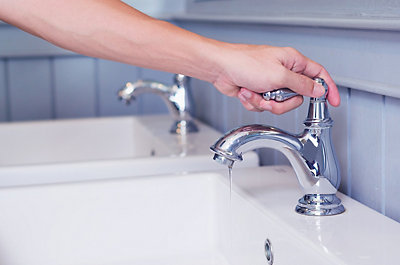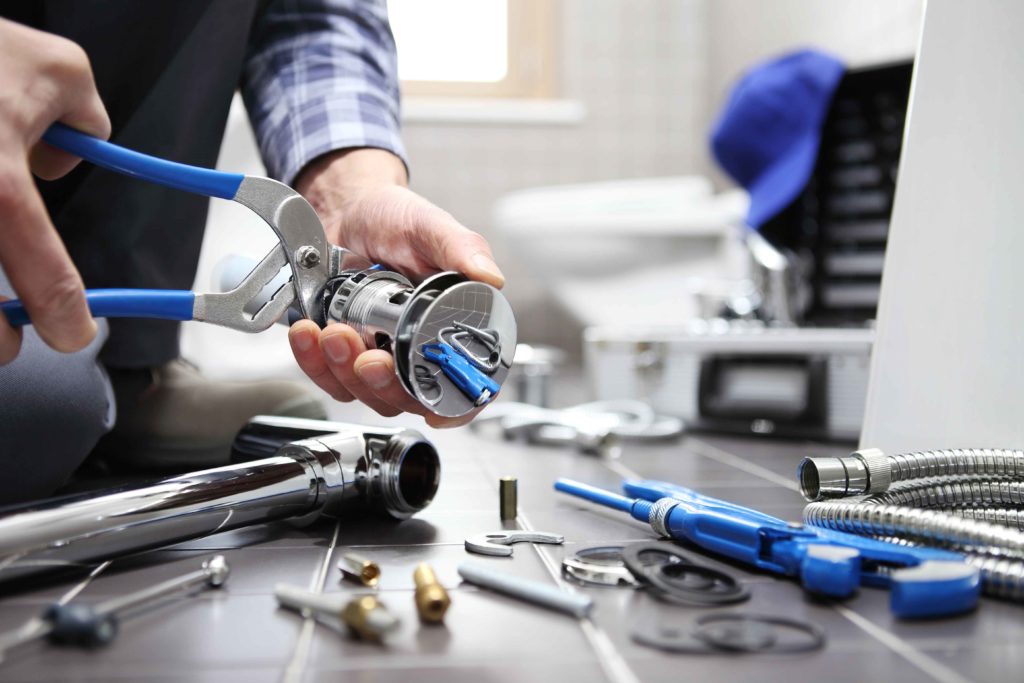Why It's Vital to Resolve a Leaking Faucet
Why It's Vital to Resolve a Leaking Faucet
Blog Article
They are making several good points on Leaky Faucets: Why They Happen & What to Do About Them overall in the content underneath.

Trickling faucets may seem like a small inconvenience, yet their impact goes beyond just the nuisance of the noise. From drainage to incurring unnecessary financial expenses and health threats, neglecting a dripping tap can result in numerous consequences. In this short article, we'll explore why it's crucial to address this usual house issue quickly and properly.
Wastefulness of Water
Environmental Influence
Dripping faucets add dramatically to water wastefulness. According to the Epa (EPA), a single faucet trickling at one drip per secondly can throw away greater than 3,000 gallons of water each year. This not only strains water sources yet additionally impacts environments and wildlife depending on them.
Financial Expenses
Boosted Water Bills
Past the ecological influence, dripping taps can blow up water bills significantly. The collected wastefulness with time converts into greater utility expenditures, which might have been avoided with prompt repair work.
Possible Property Damages
Furthermore, prolonged trickling can lead to damage to components and surface areas surrounding the tap. Water buildup can trigger discoloration, deterioration, and even structural problems if left ignored, leading to added fixing expenses.
Health Worries
Mold and Mildew Development
The continuous presence of dampness from a dripping tap develops a perfect setting for mold and mildew and mold growth. These fungi not only compromise interior air quality but also pose wellness dangers, specifically for individuals with breathing conditions or allergic reactions.
Waterborne Conditions
Stationary water in leaking faucets can become a breeding ground for bacteria and various other microorganisms, boosting the risk of waterborne diseases. Impurities such as Legionella germs grow in stagnant water, possibly causing major illnesses when ingested or breathed in.
Do it yourself vs. Specialist Repair work
Advantages and disadvantages of Do It Yourself Repair Work
While some might attempt to fix a trickling faucet themselves, do it yourself fixings include their very own set of difficulties. Without correct expertise and tools, DIY efforts can exacerbate the issue or bring about incomplete fixings, prolonging the problem.
Benefits of Employing a Specialist Plumber
Working with a professional plumber makes certain that the underlying reason for the leaking tap is addressed efficiently. Plumbing professionals have the proficiency and equipment to identify and repair tap issues effectively, conserving time and lessening the danger of additional damage.
Step-by-Step Overview to Taking Care Of a Dripping Tap
Devices Needed
Before trying to repair a leaking faucet, collect the needed tools, consisting of an adjustable wrench, screwdrivers, substitute components (such as washers or cartridges), and plumber's tape.
Usual Tap Issues and Their Solutions
Recognize the type of tap and the certain problem causing the drip. Typical problems consist of worn-out washers, rusty valve seats, or damaged O-rings. Refer to supplier guidelines or on the internet tutorials for detailed guidance on fixings.
Preventive Measures
Routine Maintenance Tips
To stop dripping faucets, carry out regular upkeep such as cleaning aerators, inspecting for leaks, and replacing worn-out parts without delay. In addition, consider installing water-saving gadgets or upgrading to a lot more reliable fixtures.
Significance of Prompt Fixes
Addressing dripping taps as quickly as they're observed protects against more water wastefulness and potential damages, inevitably conserving both water and money over time.
Impact on Residential Property Value
Understanding of Well-Maintained Building
Keeping a residential or commercial property in good condition, including addressing upkeep concerns like leaking faucets, boosts its viewed worth and value amongst potential customers or occupants.
Influence on Resale Worth
Qualities with well-maintained plumbing components, including taps, command greater resale values in the realty market. Attending to dripping taps can add to a positive perception throughout building inspections and settlements.
Ecological Duty
Individual Contribution to Conservation
Taking responsibility for dealing with dripping faucets aligns with more comprehensive initiatives towards water preservation and ecological sustainability. Every person's actions jointly make a substantial influence on preserving precious resources.
Lasting Living Practices
By focusing on punctual repairs and adopting water-saving practices, people add to sustainable living methods that profit both existing and future generations.
Final thought
Resolving a trickling tap exceeds simple benefit; it's a necessary step toward conserving water, decreasing economic expenses, and protecting health and wellness and building. Whether via DIY repair work or specialist aid, acting to fix trickling faucets is a tiny yet impactful way to advertise responsible stewardship of sources and contribute to a much healthier, much more sustainable future.
How to Fix a Leaky Faucet: Step-by-Step Repair Guide
A leaky faucet may seem like a simple annoyance, but if it's not fixed promptly, that leak could cost hundreds to potentially thousands. From water damage to mold, mildew, and high water bills, even a tiny leak can be catastrophic if left unattended. Damage like this can even affect the overall value of your home, so it's important to take the right approach for leaky faucet repair. You may need the help of a plumber in some cases, but we've got a few tips you can try on how to fix a leaky faucet before calling the pros.
Four Faucet Types
When you're learning how to fix a leaky faucet, the first step is knowing what kind of faucet you're working with! There are four common types.
Cartridge Faucets
Cartridge faucets come in one- or two-handled varieties. In one-handled cartridge faucets, hot and cold water combines in a single cartridge. In the two-handled versions, hot and cold water are controlled separately and mixed in the faucet.
Ball Faucets
Ball faucets have a single lever you push up and down to adjust the pressure and rotate to change the temperature. A slotted metal ball controls the amount of water allowed into the spout.
Compression Washer Faucets
They're the oldest type of faucet, but they're still used in many homes — especially older ones. Compression faucets have two separate handles that, when turned, raise or lower the washer that seals a water valve. This valve stops water from flowing through the faucet when it is turned off.
Disc Faucets
Disc faucets rarely need to be repaired due to their maintenance-free design. The water flow is controlled by two discs — the upper one raises and lowers against a fixed lower disc, creating a watertight seal. If your disc faucet starts leaking, you may need to replace the seals or clean residue buildup from the inlets.
Fixing a Leaky Faucet
Step 1: Turn Off the Water
Whether you're learning how to fix a leaky bathtub faucet or how to fix a leaky kitchen faucet, always turn off the water supply to your working area when you're fixing a leak. The last thing you want is a flood added to your list of things to fix.
Look for the shutoff valves below your sink or around the tub and turn them clockwise to stop the water flow. If your faucet doesn't have shutoff valves, you may need to turn off the water for the whole house. Check to make sure it's off by turning the faucet on. If nothing comes out, you're ready to start the repair.
Step 2: Take Apart the Faucet
How you disassemble your faucet depends on the type of fixture you have. You can use a flathead screwdriver to remove the caps on top of the handle or handles for cartridge and compression faucets. Inside, you should see handle screws. Unscrew these with a screwdriver to remove the handle.
Disc- and ball-style faucets will typically have an inlet screw near the handle, and removing that will reveal the interior of the faucet.
Detach the Valve Stem
For cartridge- and compression-style faucets, you'll see the inner valve stem or cartridge once you remove the faucet handles. If you have a compression faucet, unscrew the brass valve stem. If you have a cartridge faucet, pull out the cartridge. If your cartridge has been in place for a while, it may require some tools or extra force to remove it due to mineral deposits.
Examine and Replace Parts
Once you've removed the parts, check them out to confirm what needs to be replaced. You may see corroded rubber washers, O-rings, stems, or cartridges. On a ball-style faucet, check the seats and springs for damage.
If you need to repair a leaky disc faucet, check the inlet and seals on the lower disc.
Once you determine what parts must be replaced, visit your local hardware store. Bring the damaged parts with you to ensure you can purchase the correct components to replace them.
Clean Valves and Faucet Cavity
If you've removed a stem or cartridge, you may notice mineral buildup in the faucet's threads. Use white vinegar to clean the valve seat by soaking it for a few minutes, then scrub it away with a soft toothbrush and rinse with warm water. You can also clean the interior of the faucet in the same way.
Reassemble the Faucet
Once your faucet is cleaned and the required parts have been replaced, it's time to reassemble it. Put the pieces back together and slowly turn the water supply back on. Doing this slowly is crucial because too much initial water pressure can damage the new hardware you've just installed.
https://homewarranty.firstam.com/blog/how-to-fix-leaky-faucet

Do you like reading up on Why Is It Important To Fix Your Leaking Tap/Faucet?? Give feedback below. We will be happy to see your insights about this page. We hope that you visit us again in the near future. If you enjoyed reading our post if you please remember to pass it around. Thanks a bunch for your time. Kindly check up our blog back soon.
Report this page